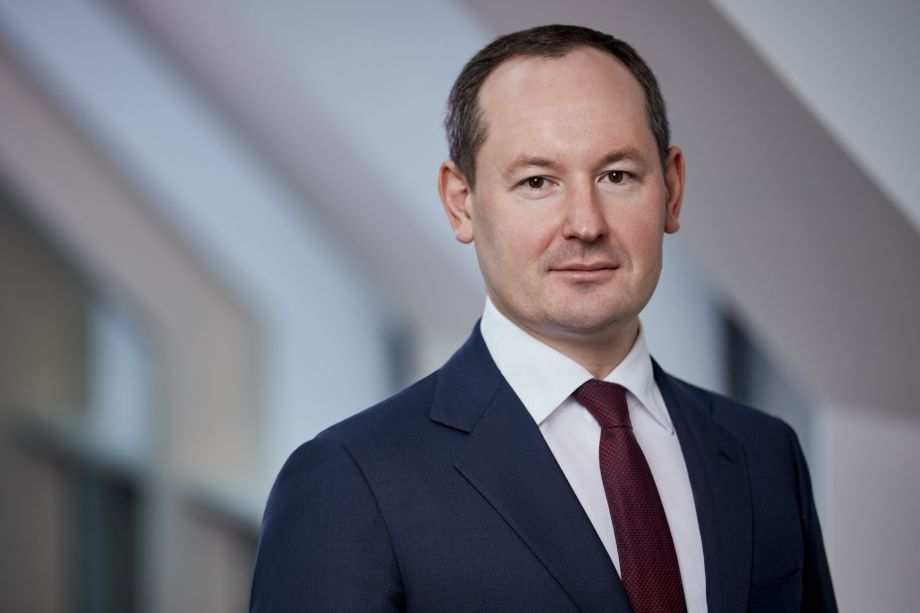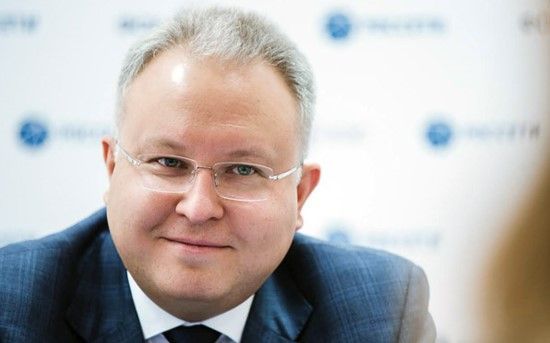The internal scandal in Rosseti over the dividend policy may be the confrontation between the ex-head of the FGC absorbed by the state holding Andrei Murov and the former head of the state company Pavel Livinsky.
According to the correspondent of The Moscow Post, the top management of the electric grid state holding Rosseti is not going to return profit to shareholders in 2020. The company explains this by a significant increase in the debt burden of a subsidiary of the Federal Network Company, which came under the full control of Rosseti last year. The issue of refusing payments will be considered on May 24 at the board of directors of the state holding, but this position has not yet been agreed with the Federal Property Management Agency (owns 88% of Rosseti), which has not yet sent its directive to state representatives on the council. Recently became the head of the state-owned company Andrei Ryumin continues the work of his predecessor Pavel Livinsky? Moreover, it seems that he is working not only in the "dividend" direction - he can also slowly squeeze out the team of Andrei Murov, the ex-head of the FGC, who was against the takeover of Rosseti.
A scandal is brewing on the board of directors of Rosseti. The company's position has not yet been agreed with the Federal Property Management Agency, which, according to Kommersant, believes that state holding should pay dividends at least at a minimum level, and the Ministry of Finance insists on paying "at least 10 billion rubles," although it initially traditionally demanded half of the net profit under IFRS (it amounted to 61.2 billion rubles in 2020).
Now the reason for the intention of Rosseti top management to refuse payments to shareholders is the high cost of creating electric networks to expand the Eastern landfill. In fact, the construction and construction itself will not be responsible for the state holding itself, but for the Federal Network Company controlled by it. At the same time, FGC itself is ready to pay shareholders about 20 billion rubles for 2020.
And here it is worth recalling that, as 47news writes, "the actual takeover by Rosseti of the structure of FGC UES" happened after Vladimir Putin approved the consolidation plan, which was requested by Rosseti CEO Pavel Livinsky. Formally, Rosseti already owned FSK, but the company was managed directly by the government. Now, after difficult and long efforts, Livinsky took the helm, and the chairman of the board of the FGC UES Andrei Murov, the middle son of the ex-head of the FSO of Russia Yevgeny Murov, became his deputy. He saw no point in consolidation. "
But last year, Rosseti had no problems with dividend payments - moreover, it was reported that in 2019 they would pay a record amount of almost 18 billion rubles.
Is it possible that this whole story with the takeover of the FGC was originally conceived in order to block the dividend flow? In this case, the ideologist here was Pavel Livinsky, whose business is now and continues Ryumin. On the other side of the barricades is Andrei Murov, whose influence seems to be weakening.
"Thank you" to Sergei Semenovich?
According to the Company magazine: "The conflict became open in 2018, when Pavel Livinsky asked Dmitry Medvedev to exclude FGC from the list of enterprises directly managed by the government, and the head of the company's board of directors Andrei Murov asked the prime minister to maintain the company's managerial independence."
However, then opinions were divided: the Ministry of Energy sided with Rosseti, and the Ministry of Economic Development and the Federal Antimonopoly Service sided with the Federal Grid Company and industrialists who threatened to reduce production. The fact is that through the FGC, businessmen directly purchased electricity, which came out to them at a price more than twice as low as if they had taken it from Rosseti.
However, last spring, State Duma Speaker Vyacheslav Volodin publicly supported the plans of the state holding to take control of 1,600 territorial network organizations for free, and then he absorbed the FGC.
As the Company magazine wrote: "Market participants attribute this to the arrival in the government of the Russian Federation of people from the entourage of Moscow Mayor Sergei Sobyanin, whose influence in the country during the epidemic has grown markedly. After all, it was Sobyanin who recommended Livinsky for the post of head of PJSC Rosseti.
By the way, now, apparently, the "Sobyaninsky" are gaining strength - so in January of this year, "Mikhail Mishustin approved the appointment of Pavel Livinsky as head of the energy department of the government apparatus," wrote Energy and Industry of Russia. There are also rumors that Livinsky can completely head the Ministry of Energy.

Pavel Livinsky
But once his father, the top manager of RAO EAS Anatoly Livinsky, worked in the ministry. Maybe it was thanks to him that Livinsky Jr. built a very successful career. After studying at Moscow State University, he, according to the Company magazine, "was in charge of the most corrupt direction of connecting customers to Moscow agglomeration networks. When the FAS and the security forces became interested in the company's activities, Livinsky already headed the Moscow fuel and energy complex and was not only the youngest, but also the richest official of the Moscow government with an income of about 204 million rubles and 32 apartments. "
As Medusa wrote (recognized as a foreign agent in the Russian Federation), in 2016, the authorities bought garlands for Tverskaya Street at 2.4 million rubles. apiece - five times more expensive than their cost. And Livinsky should have been aware of such purchases: according to his official biography on the Rosseti website, "2013-2017. He is the Head of the Department of Fuel and Energy Management of Moscow; Head of the Department of Housing and Communal Services of the city of Moscow. "
Scandals continued in Rosseti, where he came in 2017. As the Company magazine wrote: "In March 2018, State Duma deputy Ivan Sukharev discovered that the state-owned monopoly company, having finished the year with losses of 13 billion rubles, allocated 27 million for its corporate. The lot for it appeared on the portal of State procurement after the holding, and the State Kremlin Palace concluded agreements for the participation of Ivan Urgant and Yana Churikova after the event. This scandal had no consequences for Livinsky. "
Dad couldn't?
But it was once believed that incredible luck contributes to the career of Andrei Murov, also a descendant of a difficult family. His father, Yevgeny Murov, headed the FSO for a long time, but in 2016 he was removed from his post by Vladimir Putin, RBC wrote. This happened after a high-profile scandal related to the investigation of large-scale thefts in the Ministry of Culture. And after that, the wife of the general unexpectedly owned billions of assets of one of the defendants in the criminal case, businessman Dmitry Mikhalchenko, who was also convicted of alcohol smuggling, as Kommersant reported.
According to the authors of the portal Kompromat Group, allegedly "thanks to his [father - approx. Ed.] Patronage, Murov Jr. was first able to develop the construction business, receiving contracts from budget institutions in St. Petersburg, and then take the post of general director of Pulkovo Airport and avoid responsibility for financial fraud, revealed after an audit conducted by auditors of the Accounts Chamber."

Andrey Murov
As Fontanka wrote, then the auditors found "dozens of violations, strange bonuses to the director general of the airport and transactions in which the personal interest of the son of the FSO director Andrei Murov and vice-governor Yuri Molchanov was discovered." However, the scandal was quickly hushed up.
But the auditors of the Accounts Chamber came to Murov Jr. once again - already in the FGC. As the Company magazine wrote: It turned out that the company repeatedly overstated the cost of building facilities and misspent budget money. At the same time, the remuneration of members of the board of the Federal Network Company in 2010-2013 increased 2.9 times, to 505 million rubles, the expenses of the apparatus of Andrei Murov - by 45%, to 452.5 million rubles. " What to say, he turned around well in his "patrimony"!
But everything seems to have ended in the middle of 2020 with the accession of the FGC to Rosseti. As the Company about:blank magazine wrote: "The former chairman of the board Andrei Murov, who lost his post, who had long resisted the takeover of FGC Rosseti, was appointed deputy general director - executive director of Rosseti. [...] Murov also remained a member of the board of directors of the FGC. [...] None of the managers whom he brought to Rosseti from FGC was included in the updated board of directors of the company. But there are more people from Livinsky's team who came with him to Rosseti from the Moscow government of Sergei Sobyanin to the FGC. "
Moreover, after Livinsky left Rosseti, the sweep of the Murovsky was continued by his replacement, Ryumin. In May of this year, Alexander Zaragatsky, who oversees the legal, investment, client and corporate blocks, resigned from his post. As Kommersant wrote: "Mr. Zaragatsky is a member of the team of the former head of the Federal Network Company (FGC, manages the backbone complex), now first deputy - executive director of Rosseti Andrei Murov. (...) Mr. Zaragatsky moved after Andrei Murov to Rosseti after combining the executive apparatus of Rosseti and FGC in February 2020, but did not work with the new head of the company Andrei Ryumin ".
So, in the probably existing confrontation between Livinsky and Murov, the first wins? After all, it is to him that rumors read an ever higher post, but the position of Murov, who was left without his team, seems precarious. But in the end, the main loser may still be the state, which will not receive billions in its budget due to the non-payment of dividends by Rosseti.


.jpg?v1621919819)
.jpg?v1621919819)